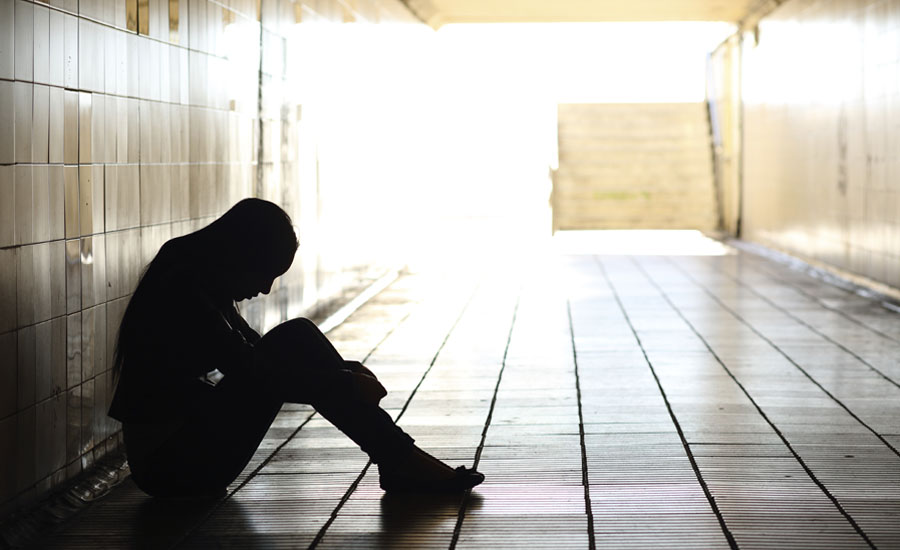Discrimination linked to increased stress, poor health

Nearly half of U.S. adults report they have experienced a major form of unfair treatment or discrimination, including being unfairly questioned or threatened by police, being fired or passed over for promotion or treated unfairly when receiving health care. These acts of discrimination are associated with higher reported stress levels and poorer reported health, according to the survey Stress in America™: The Impact of Discrimination released today by the American Psychological Association (APA).
The survey, which was conducted online by Harris Poll on behalf of APA among 3,361 adults in August 2015, found that nearly seven in 10 adults in the U.S. report having experienced discrimination, and 61 percent said they experience day-to-day discrimination, such as being treated with less courtesy or respect, receiving poorer service than others, or being threatened or harassed.
Race behind most discrimination
Black adults are among the most likely to report experiencing some sort of discrimination. More than three in four black adults report experiencing day-to-day discrimination and nearly two in five black men say that police have unfairly stopped, searched, questioned, physically threatened or abused them. Black, Asian, Hispanic and American Indian/Alaska native adults report that race is the main reason they have experienced discrimination.
“It’s clear that discrimination is widespread and impacts many people, whether it is due to race, ethnicity, age, disability, gender or sexual orientation,” said Jaime Diaz-Granados, PhD, APA’s executive director for education. “And when people frequently experience unfair treatment, it can contribute to increased stress and poorer health.”
For many adults, even the anticipation of discrimination contributes to stress. Three in 10 Hispanic and black adults who report experiencing day-to-day discrimination at least once a week say that they feel they have to be very careful about their appearance to get good service or avoid harassment. This heightened state of vigilance among those experiencing discrimination also includes trying to prepare for insults from others before leaving home and taking care of what they say and how they say it.
Higher stress
The results from this year’s Stress in America™ survey also suggest that there are significant disparities in the experience of stress itself, and that stress also may be associated with other health disparities. The nearly one-quarter (23 percent) of adults who report that their health is only “fair” or “poor” have a higher reported stress level on average than those who rate their stress as “very good” or “excellent.”
Certain populations consistently struggle with stress more than others, such as Hispanic adults, who report the highest stress levels on average. Younger generations, women, adults with disabilities, and adults who are lesbian, gay, bisexual or transgender also report higher average stress levels and are more likely than their counterparts to say that their stress has increased since last year.
"An issue that must be addressed"
“Stress takes a toll on our health, and nearly one-quarter of all adults say they don’t always have access to the health care they need,” said Cynthia Belar, PhD, APA’s interim chief executive officer. “In particular, Hispanics—who reported the highest stress levels—were more likely to say they can’t access a non-emergency doctor when they need one. This year’s survey shows that certain subsets of our population are less healthy than others and are not receiving the same level of care as adults in general. This is an issue that must be addressed.”
The report uncovered some good news about stress management related to discrimination. Despite their stress, the majority of adults (59 percent) who report experiencing discrimination feel that they have dealt quite well or very well with it and any resulting changes or problems.
In addition, many adults report having a positive outlook, and survey findings point to the strong impact of emotional support. Having someone they can ask for emotional support if they need it, such as talking about problems or helping them make a difficult decision, appears to improve the way that individuals view their ability to cope with discrimination. Adults who experienced discrimination and had emotional support were twice as likely to say that they coped quite or very well compared with those adults who experienced discrimination but did not have emotional support (65 percent vs. 37 percent of those who reported not having emotional support).ey,
Money, work and stress
Since 2007, the survey has found that money and work are consistently the top two sources of significant stress (67 percent and 65 percent in 2015, respectively). This year, for the first time, the survey found that family responsibilities were the third most common stressor (54 percent), followed by personal health concerns (51 percent), health problems affecting their family (50 percent), and the economy (50 percent).
While average reported stress levels in the United States have increased slightly in the past two years (5.1 in 2015 and 4.9 in 2014 on a 10-point scale, where 1 is “little or no stress” and 10 is “a great deal of stress”), adults are more likely than in past years to report experiencing extreme stress (a rating of 8, 9 or 10 on a 10-point scale). Twenty-four percent of adults report these levels, compared with 18 percent in 2014. This represents the highest percentage reporting extreme stress since 2010.
To read the full Stress in America™ report or download graphics, visit www.stressinamerica.org.
For additional information on stress, lifestyle and behaviors, visit www.apa.org/helpcenter. Join the conversation about stress on Twitter by following @APAHelpCenter and #stressAPA.
Looking for a reprint of this article?
From high-res PDFs to custom plaques, order your copy today!





